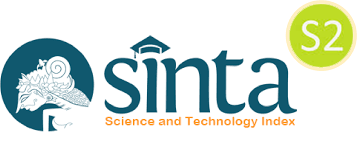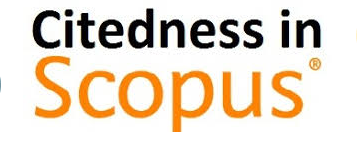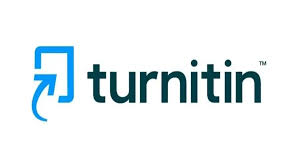The Price of Animal’s Soul: Late-Stage Capitalism, Animal Welfare and the Law
DOI:
https://doi.org/10.18196/iclr.v3i2.11939Keywords:
animal welfare, animal rights, animal workers, capitalism.Abstract
The current epoch of capitalism creates more distinct issues, and one of its conflicts is the class struggle of animal workers. This paper will begin by inquiring how much is the price of an animal's soul?—and further, it will situate the Indonesian laws in the effort to accommodate the animal's protection and their welfare. The features of late-stage capitalism indicate the conflict of class struggle for animal workers. The assessment is more than an economic perspective, but human and non-human animal intra-action nexus, legal standpoint, and socio-cultural point of views. This analysis will refer to late-stage capitalism theory, Indonesian laws and other related regulations concerning animal protection, and comparative cases of animal welfare cases in Indonesia and Thailand. This paper is expected to provide an overview of the role of law in providing an understanding of animals as sentient beings rather than property.
References
Books and book chapters
Francione, G. (1995). Animals Property & The Law. Amsterdam University Press.
Nibert, D. (2017). Animal Oppression and Capitalism [2 volumes]. Praeger.
Morton, T. (2017). Humankind: Solidarity with Nonhuman People. Verso.
Patel, R., & Moore, J. W. (2018). A History of the World in Seven Cheap Things: A Guide to Capitalism, Nature, and the Future of the Planet (First ed.). University of California Press
Rees, P. A. (2017). The Laws Protecting Animals and Ecosystems (1st ed.). Wiley-Blackwell.
Ritzer, G., & Stepnisky, J. (2013). Sociological Theory, 9th Edition (9th ed.). McGraw-Hill Education.
Journal article
Attfield, R. (1998). Existence value and intrinsic value. Ecological Economics, 24(2–3), 163–168.
Burrell, A. (2002). Animal Disease Epidemics: Implications for Production, Policy and Trade. Outlook on Agriculture, 31(3), 151–160.
Grossi, G., Goglio, P., Vitali, A., & Williams, A. G. (2018). Livestock and climate change:
impact of livestock on climate and mitigation strategies. Animal Frontiers, 9(1), 69–76.
Moorhouse, T. P., D’Cruze, N. C., & Macdonald, D. W. (2017). The effect of priming, nationality and greenwashing on preferences for wildlife tourist attractions. Global Ecology and Conservation, 12, 188–203.
Painter, C. (2016). Non-human animals within contemporary capitalism: A Marxist account of non-human animal liberation. Capital & Class, 40(2), 327–345. P. 324.
Singer, P. (1987). Animal liberation or animal rights? The Monist, 70(1), 3-14.
Report
Brambell Committee ‘Report of the Technical Committee to Enquire into the Welfare of Animals kept under Intensive Livestock Husbandry Systems’ (Her Majesty’s Stationery Office, 1965).
Website
Animal Cognition (Stanford Encyclopedia of Philosophy). (2021, March 8). Stanford Encyclopedia of Philosophy. https://plato.stanford.edu/entries/cognition-animal/
Arranz, A. (2020, July 29). Monkey helpers or coconut slaves? South China Morning Post. https://multimedia.scmp.com/infographics/news/world/article/3094954/coconut-harvest/
Badan Pusat Statistik. (2020, June 10). Badan Pusat Statistik (Central Bureau of Statistics). https://www.bps.go.id/publication/2020/06/10/93c6d3265760176e2a87c8cf/peternakan-dalam-angka-2020.html
Foster, J. B. (2019, May 26). Marx and the Critique of Alienated Speciesism. Monthly Review. https://monthlyreview.org/2019/05/01/marx-and-the-critique-of-alienated-speciesism/
Indonesia | World Animal Protection. (2020, March 10). Animal Protection Index. https://api.worldanimalprotection.org/country/indonesia
Monkeys Chained, Abused for Coconut Milk | PETA. (2021, May 11). PETA Exposés and Undercover Investigations. https://investigations.peta.org/monkeys-abused-coconut-milk/
Downloads
Published
Issue
Section
License
By publishing with Indonesian Comparative Law Review, authors agree to the following terms:
1. Authors retain the copyright to their work and grant Indonesian Comparative Law Review the right of first publication, while also licensing the work under a Creative Commons Attribution License (CC BY 4.0). This license permits others to share the work, provided they acknowledge the author and the initial publication in this journal.
2. Authors may enter into separate agreements for non-exclusive distribution of the published version of their work, such as posting it to an institutional repository or including it in a book, with acknowledgement of its initial publication in this journal.
3. Authors are encouraged to share their work online, for example on institutional repositories or personal websites, both before and during the submission process. This practice can lead to productive exchanges and increased citation of published work.



